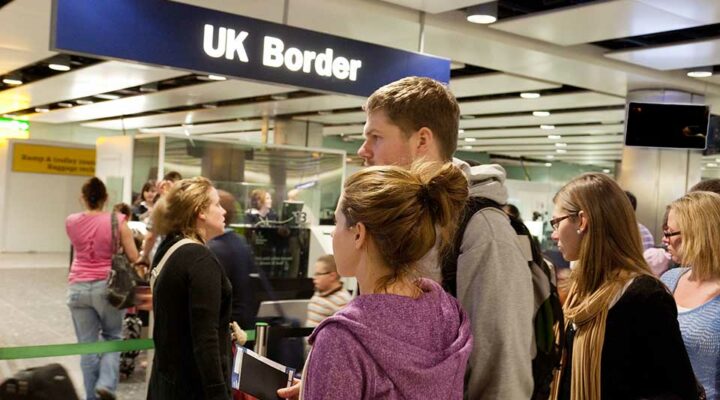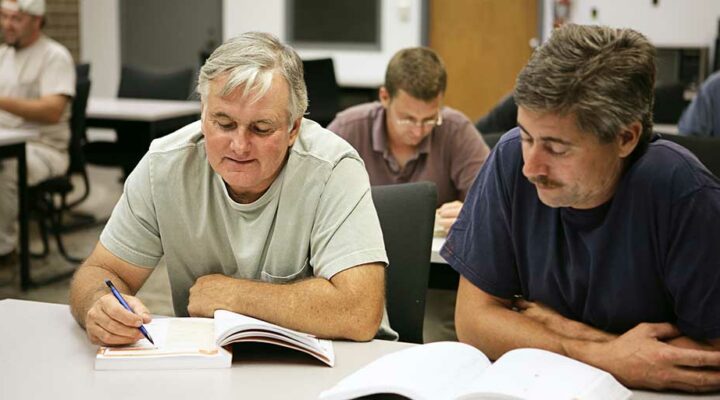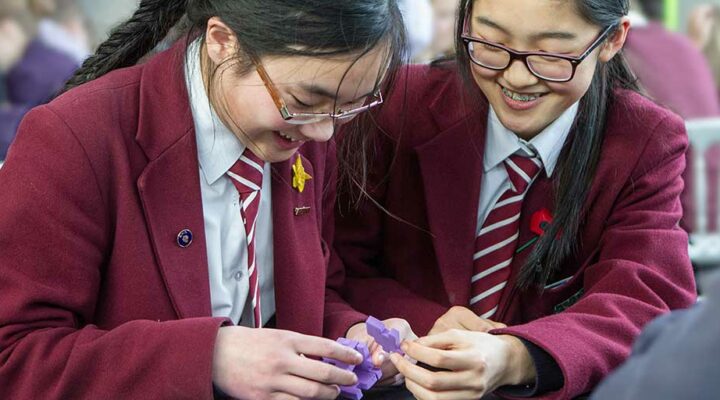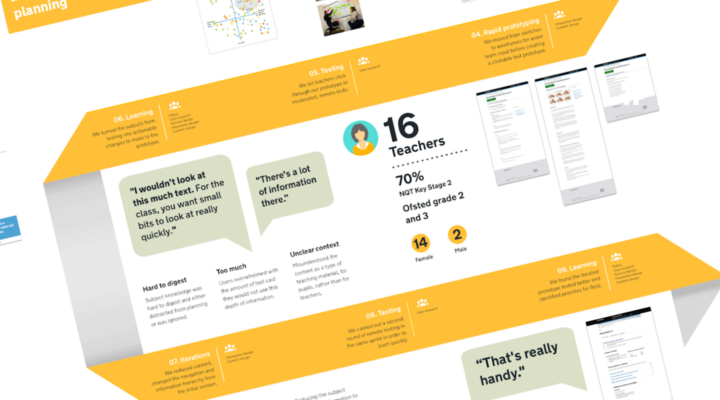
The decision to recall someone from probation back to prison has serious implications for society, the Probation Service and citizens. We’re working with MoJ and HMPPS to develop better tools for probation officers to ensure Recall decisions are consistent and data-driven.

The volume of unstructured information held by government is vast: imagine a stack of paper 20,000 miles high in the centre of Whitehall. Working with Cabinet Office we’ve prototyped machine learning and natural language processing tools to make the knowledge in these documents transparent and accessible.

Working with Defra’s policy teams and farmers, we led a multi-vendor Discovery exploring how government can incentivise the farming industry to adopt sustainable practices and reduce its reliance on subsidies.

We led a partnership with DfE, Open University and CENTURY Tech to explore the best technologies for teaching low-skilled, low confidence adults. Working with over 200 users, we researched adaptive learning, curriculum content and tutor support through digital prototypes.

We led the development of a playbook that will complement the GDS service manual and help define how product teams will work and become more user-centred. The Playbook was co-created with Home Office's communities of practice.

Up to 1 in 5 people could have their jobs displaced by skills automation. We’ve been working with Department for Education to prototype an adult skills programme for the 21st century.

DfE asked us to look across the education sector, understand what services might be missing or need transforming and define over 50 service lines to help government better meet the needs of education users.

We've looked at how the health & social care system and GOV.UK can improve fostering by implementing better technology and making crucial advice more accessible to foster parents.

We helped ideate two important new services for Amnesty International: PANIC BUTTON allows activists to be traced in the event of capture or kidnap, while AMLEA allows activists to stay in contact securely and untraceably using the Tor network.

Through research with students, schools and EdTech providers we looked at ways for Government to increase takeup of foreign language GCSE options by bringing learning technology into the classroom.

The team at NHSX have been charged with transforming the way that cervical screening is done in England. We've been helping them establish their programme through workshops and coaching.

Teachers spend on average nearly 9 hours a week preparing and planning lessons. Through research, design and content strategy we prototyped a new Government service to make high quality curriculum materials easy to download and adapt to individual teaching styles.

Using seed funding from NESTA, we’ve been co-developing a new product that cultural organisations can use to build creative campaigns at live events, incorporating real-time audience participation.

Behaviour change for young people is rarely designed well by adults. We used co-design techniques with low attaining 18-20 year olds, allowing them to create better ways to highlight their skills and persuade employers to look beyond their current qualifications.

We worked with 80 parents in some of the most deprived areas of the country to understand what government could do to help their kids participate in out-of-school activities that would help them build life skills and resilience.

Understanding the best path through post-16 education is complex. We used a mixture of qualitative research and a randomised control trial to help the T Levels policy team understand which features of the new technical qualifications would be most valuable to students.

The delivery of the new Apprenticeships Levy came with public commitments from ministers and a ‘drop-dead’ date for national rollout. We helped Skills Funding Agency develop the capability to deliver a new digital service.
